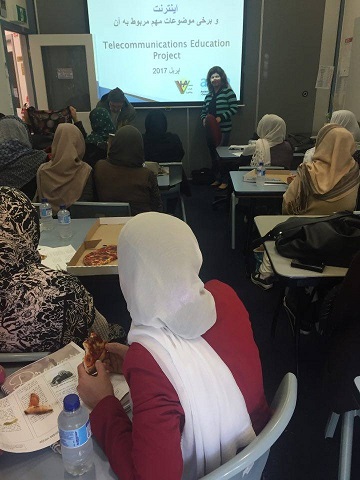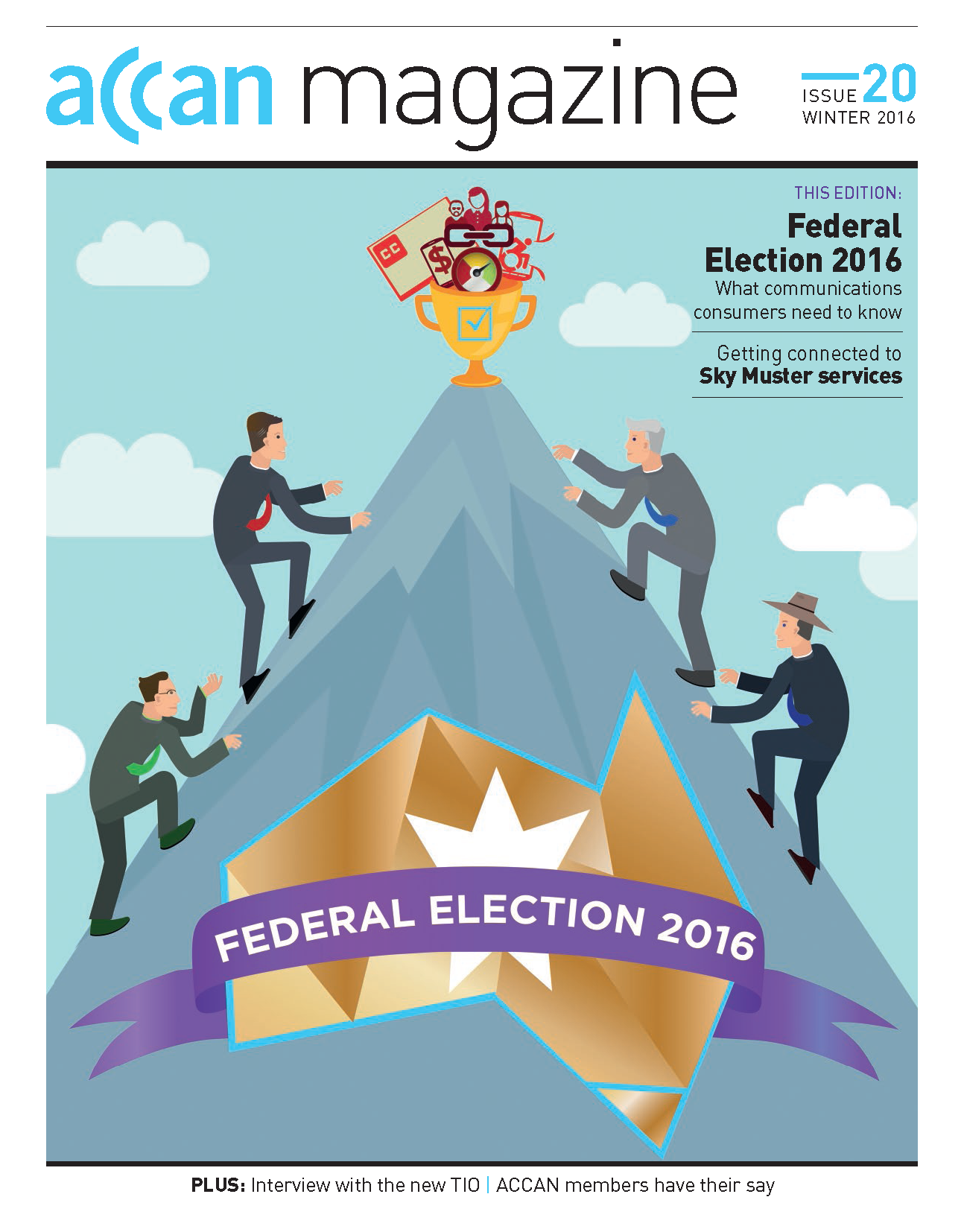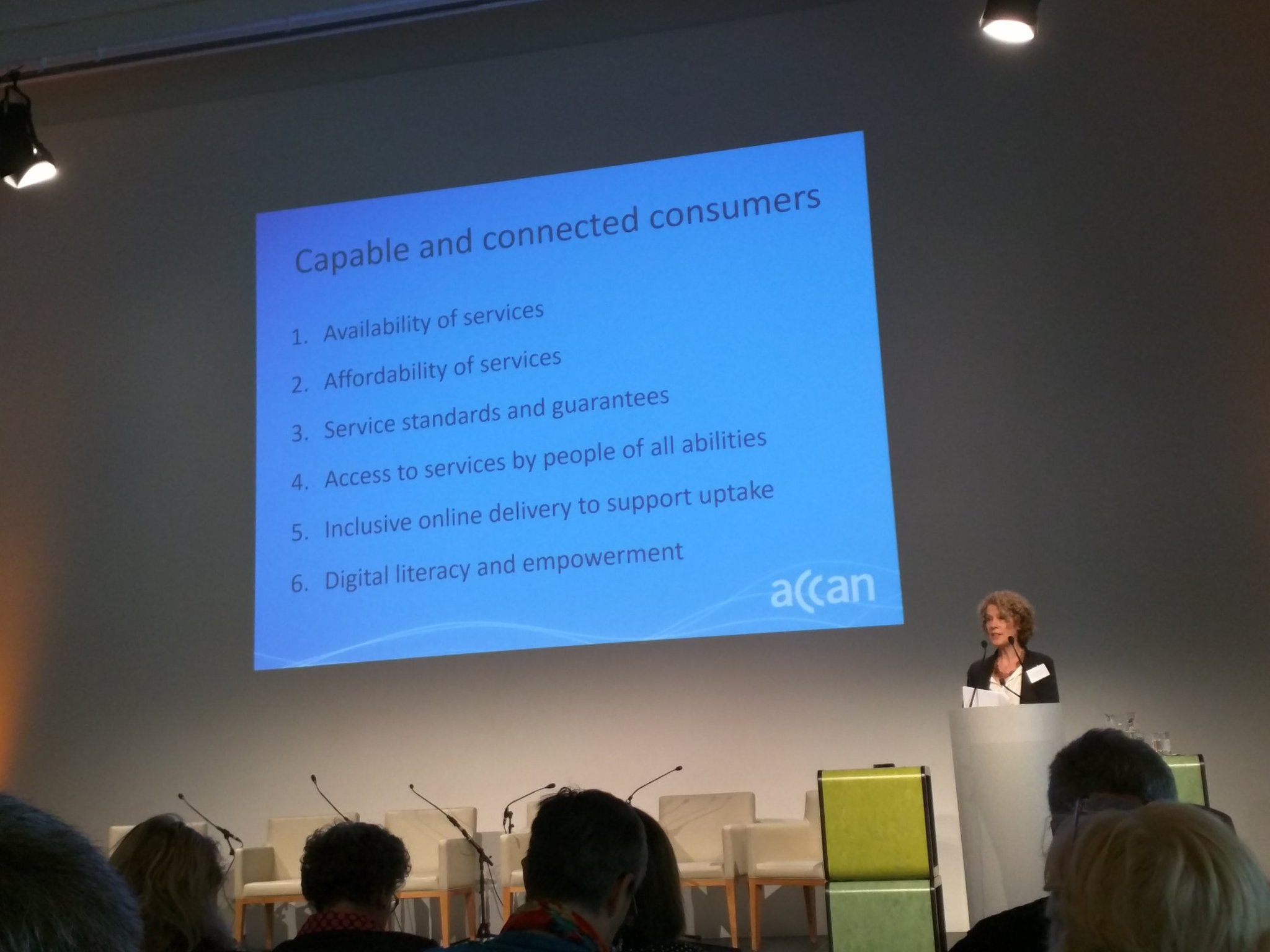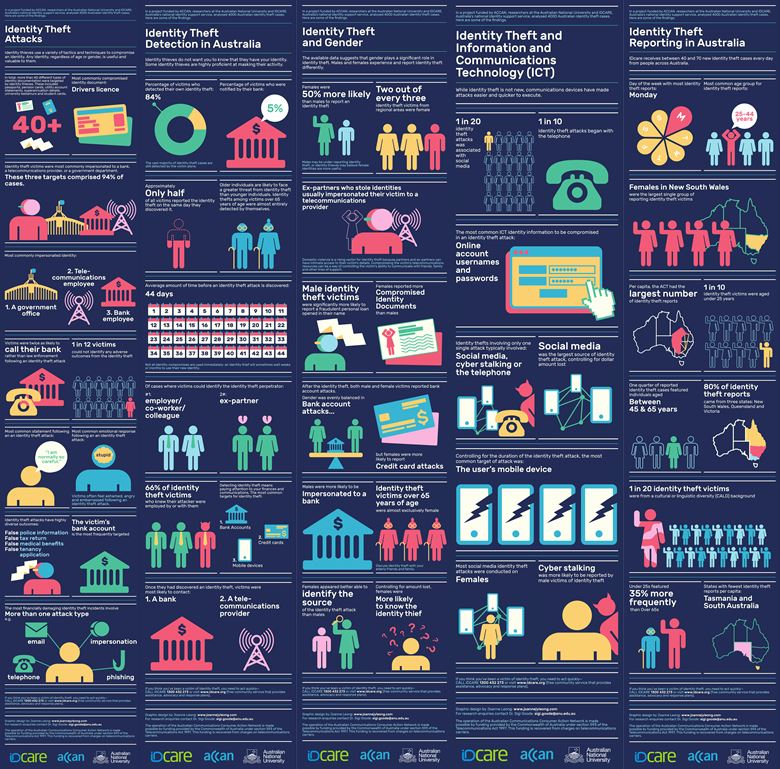- Details
 Financial and Consumer Rights Council Inc. (FCRC)
Financial and Consumer Rights Council Inc. (FCRC)
Grant round: 2016
Amount: $60,000
- Details

University of Sydney, Charles Perkins Centre
Grant round: 2016
Amount: $59,842.30
Read more: Finding peace of mind: Navigating the marketplace of mental health apps
- Details
 Queensland University of Technology, Digital Media Research Centre
Queensland University of Technology, Digital Media Research Centre
Grant round: 2016
Amount: $59,860
Read more: Australian consumer access to digital media content
- Details

The Association of Hazaras in Victoria
In partnership with the Victorian Afghan Associations Network
Grant round: 2016
Amount: $7,500
- Details
Australian National University, Research School of Management
In partnership with IDCare, and the University of the Sunshine Coast, Centre for Human Factors & Sociotechnical Systems.
Grant round: 2016
Amount: $44,965.50
Read more: Understanding Consumer Identity Theft Risks Across Communications Media
- Details
 Telecommunication services have and are rapidly evolving. ACCAN believes the enhancements to quality of life and economic opportunities from being connected should be available to all consumers.
Telecommunication services have and are rapidly evolving. ACCAN believes the enhancements to quality of life and economic opportunities from being connected should be available to all consumers.
In looking at the future of communication services in Australia it is time for a new focus on consumer needs. The focus to date has centred too much on developments in the telecommunications market and infrastructure rollout. A consumer focus reveals a number of policy gaps that must be addressed now. These are discussed in ACCAN’s new policy position, The Connected Consumer.
Read more: The future of consumer focused communication services
Write comment (0 Comments)- Details

Download: ![]() ACCAN Magazine Issue 20 Winter 20162.81 MB (Note: reading order not accessible)
ACCAN Magazine Issue 20 Winter 20162.81 MB (Note: reading order not accessible)
Download accessible version: ![]() ACCAN Magazine - Winter 2016 accessible version41.46 KB
ACCAN Magazine - Winter 2016 accessible version41.46 KB
- Details
 It’s a sad fact of life that one day we will die.
It’s a sad fact of life that one day we will die.
Many of us think of our legacy simply in terms of money in the bank, superannuation, cars, homes and other physical assets, but with more and more of our lives being lived online we have a large digital footprint we could leave behind as well.
Read more: Managing your digital legacy
Write comment (0 Comments)- Details
 Today, ACCAN Director of Policy, Una Lawrence, delivered a presentation on ACCAN’s policy outcomes to improve communications services and products for Australian consumers at the Broadband for the Bush Forum.
Today, ACCAN Director of Policy, Una Lawrence, delivered a presentation on ACCAN’s policy outcomes to improve communications services and products for Australian consumers at the Broadband for the Bush Forum.
The speech identified six areas of focus where current policy settings are not delivering for consumers:
Read more: ACCAN presentation at Broadband for the Bush Forum 2016
Write comment (0 Comments)- Details
After consulting with consumers and members ACCAN has developed its position to ensure all consumers can be connected consumers.
Connected consumers are able to do what they need through communication services. Without connected consumers there will be social isolation, reduced economic livelihood, insecurity and potential threat to safety. Focusing on connected consumers, allows us to ensure that communication services delivers for consumers, society and the economy.
- Details
ACCAN has written to the major political parties (the Liberal Party, the Australian Labor Party, the Nationals and Australian Greens) to raise awareness of the need for politicians and government agencies to ensure that all of their online video content is accurately captioned. See below for a copy of this letter.
YouTube has a function that auto-captions videos uploaded to the site, but these captions are often inaccurate. Videos that are uploaded to Facebook often have no captions.
One in 6 Australians suffer from hearing loss; that’s 1 in 6 consumers who are not able to access online videos due to unreadable captions or a lack of captions. Access to information is especially important during the lead up to the 2016 Election. If videos are not properly captioned then many consumers will miss out on important information.
Read more: Online videos need to be properly captioned
Write comment (0 Comments)- Details
 Amending the Broadcasting Services Act to introduce audio description on free-to-air TV is one of ACCAN’s 2016 communications consumer priorities. Introducing audio description on Australian TV would provide greater access for consumers who are blind or vision impaired. Currently there is no audio description on Australian free-to-air TV.
Amending the Broadcasting Services Act to introduce audio description on free-to-air TV is one of ACCAN’s 2016 communications consumer priorities. Introducing audio description on Australian TV would provide greater access for consumers who are blind or vision impaired. Currently there is no audio description on Australian free-to-air TV.
Audio description is additional verbal narration that describes visual elements shown on screen during pauses in dialogue. It can describe elements such as scenes, costumes and actions.
Read more: Update on audio description
Write comment (0 Comments)
